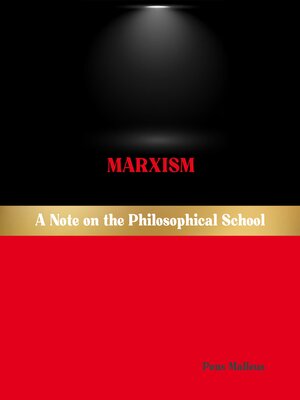Marxism
audiobook (Unabridged) ∣ A Note on the Philosophical School · Western Philosophical Schools
By Pons Malleus

Sign up to save your library
With an OverDrive account, you can save your favorite libraries for at-a-glance information about availability. Find out more about OverDrive accounts.
Find this title in Libby, the library reading app by OverDrive.



Search for a digital library with this title
Title found at these libraries:
| Library Name | Distance |
|---|---|
| Loading... |
This audiobook is narrated by a digital voice.
Marxism, perhaps more than any other philosophical school of thought in the modern era, has stirred the minds, hearts, and struggles of individuals across the globe. Born from the sharp critique of capitalism and the vision of a just society, it has stood as both a rallying cry for revolution and a subject of intense academic inquiry. This book seeks not only to present the key tenets of Marxist philosophy but also to explore its evolution, internal debates, and continued relevance in a world grappling with deep inequalities, ecological crises, and shifting political paradigms.
The philosophical foundations of Marxism trace their roots to the intellectual upheavals of 19th-century Europe. Karl Marx, alongside Friedrich Engels, synthesized the critical currents of German idealism (particularly Hegel), British political economy (especially Adam Smith and David Ricardo), and French socialism. Yet, Marxism was never merely a sum of its parts; it emerged as a transformative critique of existing social relations and a method for understanding—and changing—the world. Marx's materialist conception of history, his theory of class struggle, and his analysis of capital are not static doctrines but dynamic tools meant to interpret and intervene in society.
This book does not seek to offer a dogmatic account of Marxism but rather to engage with its rich and often contested legacy. Marxist thought has undergone numerous transformations—through Leninism, Maoism, Western Marxism, critical theory, and post-Marxism, among others. Each of these variations has attempted to adapt Marxist analysis to new contexts, from the dynamics of imperialism and colonialism to questions of ideology, culture, and subjectivity. The diversity within Marxist theory is a testament to its vitality and its capacity for self-critique.







